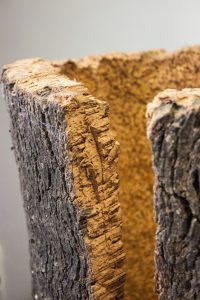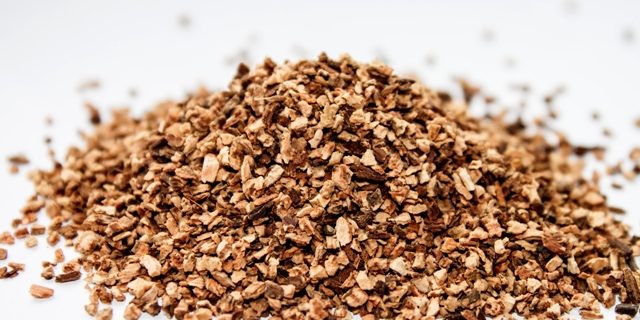Over the past few years demand for cork granules to replace rubber for infill for artificial turf for football pitches and other sports surfaces has continued to grow. Here we will explain about the options available.
Many artificial turf suppliers are responding to client concerns about using rubber as infill and cork granules is one of the few options for a 100% natural alternative. Whilst cork granules can perform the function of infill very well, there are two key problems: first is the price, with the very lowest quality granules costing from around €0.70 per kg, the more premium options will cost nearer €2 per kg. Second is the problem that cork granules will tend to deteriorate over time at a faster rate than rubber, so the infill will need topping up more regularly.
When ordering cork granules for infill, you need to consider two parameters: density and granule size. To understand the density options for cork granules, you need to consider how cork granules are produced: cork comes from the bark of the cork oak tree (incidentally cork trees are not killed when the bark is removed, rather the bark regenerates every nine years). This cork oak bark consists of soft cork from the side nearest the tree and much harder ‘woody’ cork from the outer edge of the bark. The soft granules have a low density (starting at round 60 kg/m3) and the outside granules can have a density of up to 250 kg/m3, then there are granules with all densities in between. The soft, low density granules are mainly used to make agglomerated wine corks, whilst the granules of around 80 kg/m3 and upwards are used for other purposes.


When we granulate cork, we sort the granules into different bands of densities, as well as sorting them by the size of granules (generally from 0.2mm up to 8mm). The density is the key determinant of price rather than the granule size.
To determine which cork granules to use for artificial grass infill, you need to look at the different properties that different densities will give you. Generally the lowest density used for this purpose is 100-120 kg/m3 (typically size 1-2mm) – these granules are durable as their elasticity makes them less prone to crumbling than more brittle higher densities, but because of their lightness, they are more prone to bounce when being played on. The higher density granules are considerably less expensive, but may offer less cushioning and be more prone to crumbling. You will also note that higher density granules have a lot darker colour than the low density granules.
We are able to supply around 12 containers per month of these different densities (around 800 m3), so if you are interested in placing an order and would like to know more information, please contact us at CorkLink – we also welcome buyers to visit our facilities in northern Portugal to see the granules being produced.








